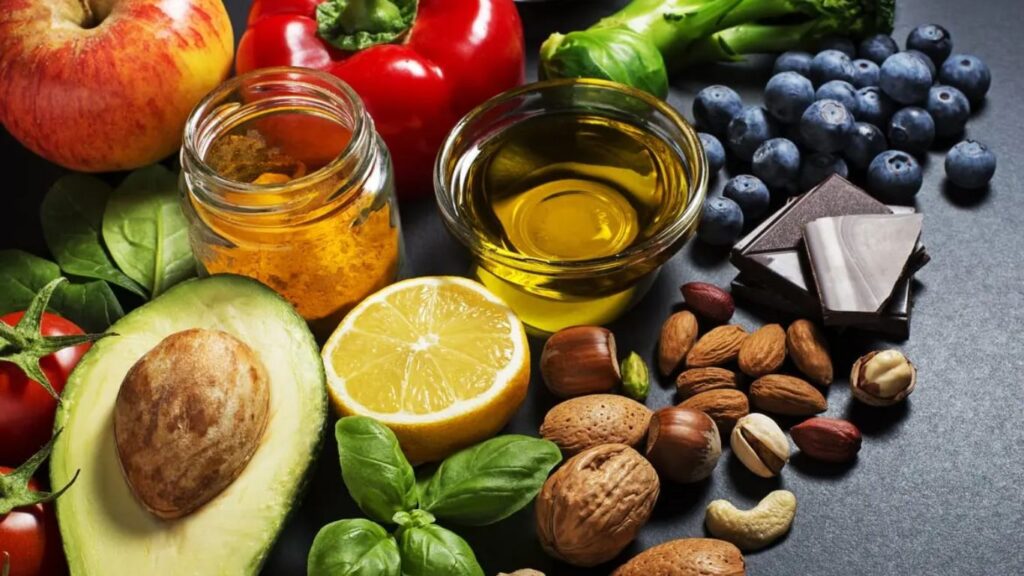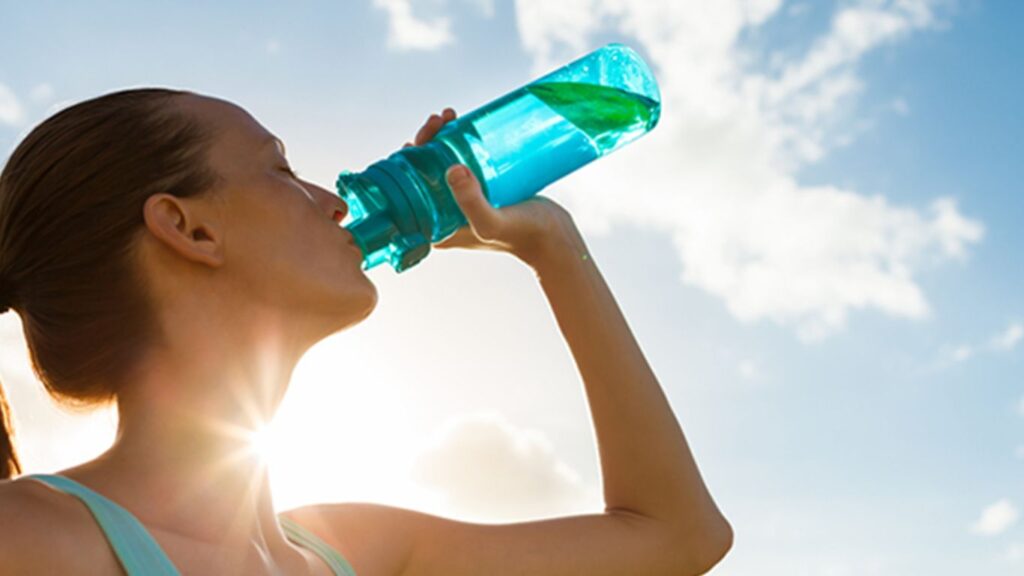Our skin is often seen as a reflection of our overall health, and rightly so. It’s the largest organ of our body and can be profoundly affected by our daily diet. While many of us are diligent about using the right creams and serums, we often overlook the impact of what’s on our plate. From the stubborn acne that surfaces at the worst possible times to the early signs of aging, the connection between our eating habits and skin condition is undeniable. In this comprehensive guide, we delve into how the foods we consume play a pivotal role in maintaining our skin’s health, vitality, and youthfulness. Let’s embark on a journey to understand this intricate relationship and learn how we can eat our way to better skin.
The Skin-Gut Connection
The link between our gut health and skin condition is a fascinating aspect of holistic wellness. This connection, often referred to as the skin-gut axis, highlights how the balance of bacteria in our gut can significantly influence our skin’s health. A healthy gut microbiome aids in reducing systemic inflammation, a key culprit behind various skin issues like acne, eczema, and psoriasis. When our gut flora is imbalanced, it can lead to increased intestinal permeability, commonly known as “leaky gut,” allowing toxins and bacteria to enter the bloodstream and potentially trigger skin inflammation. Incorporating a diet rich in probiotics, prebiotics, and fiber helps maintain a robust gut microbiome, thus promoting clearer, healthier skin. This intricate interplay underscores the importance of considering gut health as an integral part of any skincare routine, reminding us that beauty truly does start from within.
Nutrients Essential for Healthy Skin
Vitamins:
Vitamins C, E, and A play pivotal roles in maintaining skin health. Vitamin C is crucial for collagen synthesis, the protein that gives skin its firmness and elasticity. It also helps in healing and reducing the damage caused by UV rays. Vitamin E, a powerful antioxidant, works to protect the skin from oxidative stress and UV damage, while also aiding in skin repair and moisture retention. Vitamin A, often found in retinoids, is vital for skin cell regeneration and can help reduce signs of aging. Together, these vitamins form a formidable trio in preserving skin health, combating signs of aging, and protecting against environmental damage.

Antioxidants:
Antioxidants in fruits and vegetables are essential warriors in the fight against skin damage. They combat free radicals – unstable molecules that can harm skin cells and accelerate aging. Free radicals are generated through environmental stressors like pollution and UV radiation. Antioxidants neutralize these harmful molecules, thereby reducing oxidative stress, which is linked to premature aging and various skin problems. Regular consumption of antioxidant-rich foods like berries, leafy greens, and tomatoes helps maintain skin health, promoting a youthful, radiant complexion. By incorporating these nutrients into our diet, we arm our skin against external aggressors and internal aging processes.
Omega-3:
Omega-3 and omega-6 fatty acids, found abundantly in fish, nuts, and seeds, play a crucial role in skin health. These essential fatty acids are key components of the skin’s lipid barrier, which acts as a shield to lock in moisture and protect against environmental irritants. A strong, healthy barrier is essential for maintaining hydrated, supple skin. Additionally, omega-3s are known for their anti-inflammatory properties, helping to reduce redness, swelling, and irritation associated with various skin conditions like acne and eczema. By including foods rich in these nutrients in our diet, we support our skin’s natural defenses and promote overall skin wellness.
Hydration:
Water plays an indispensable role in maintaining skin hydration and elasticity. It hydrates skin cells, ensuring they remain plump and bouncy, which in turn enhances the skin’s elasticity and youthful appearance. Adequate water intake helps to flush out toxins, reducing the likelihood of skin congestion and breakouts. It also aids in nutrient distribution across skin cells, vital for their health and repair. When the skin is well-hydrated, it appears more radiant, less prone to fine lines, and more resilient against external irritants. Thus, regular and sufficient water consumption is a simple yet effective way to preserve and improve skin health and appearance.

Foods That Can Harm Your Skin
High-Glycemic Foods:
Sugary and high-glycemic index (GI) foods can significantly impact skin health, particularly in triggering acne and inflammation. High-GI foods cause rapid spikes in blood sugar levels, prompting the body to release insulin. Elevated insulin levels can lead to an increase in sebum production, a natural oil in the skin, which can clog pores and lead to acne. Furthermore, these insulin spikes can stimulate androgen hormones, exacerbating acne development. Additionally, high blood sugar levels can trigger inflammatory responses in the body, worsening skin conditions like acne and contributing to redness and swelling. Therefore, moderating the intake of sugary and high-GI foods is crucial for maintaining clear, healthy skin.
Dairy Products:
The link between dairy consumption and skin conditions like acne and eczema is a topic of increasing interest. Dairy products, particularly those from cows, contain hormones and bioactive molecules that can influence human hormones. These hormonal effects can exacerbate skin conditions, especially acne, by increasing sebum production and promoting inflammation, both key factors in acne development. Additionally, dairy can trigger immune responses in some individuals, potentially worsening eczema, characterized by dry, itchy, and inflamed skin. While not everyone is equally affected, those with existing skin conditions may benefit from monitoring or reducing their dairy intake to assess any potential impact on their skin health.
Processed Foods:

Processed foods, laden with high levels of preservatives and additives, can have a detrimental impact on skin health. These artificial substances can disrupt the body’s hormonal balance, leading to increased oil production and the potential for acne breakouts. Additionally, the high salt content often found in processed foods can lead to dehydration, which can make the skin look dull and exacerbate the appearance of fine lines and wrinkles. The inflammation triggered by certain additives and preservatives can also exacerbate skin conditions like eczema and rosacea. Therefore, reducing the intake of heavily processed foods can be a crucial step towards maintaining healthier, clearer skin.
Alcohol and Caffeine:
Alcohol and caffeine, while popular in many diets, can have dehydrating effects on the body, including the skin. Dehydration caused by these substances can lead to a loss of skin elasticity and plumpness, making fine lines and wrinkles more noticeable. Furthermore, dehydration can impair the skin’s natural barrier function, making it more susceptible to irritants and environmental stressors. This can exacerbate conditions like eczema, rosacea, and acne. Alcohol, in particular, can also lead to inflammation and a flushed appearance, aggravating conditions like rosacea. Moderating the intake of alcohol and caffeine is therefore advisable to maintain optimal skin hydration and health.
Practical Diet Tips for Healthier Skin
- Start with Breakfast: Begin your day with a skin-boosting meal like oatmeal topped with berries and nuts, or a smoothie loaded with spinach, avocado, and a scoop of protein powder. These options are rich in antioxidants and healthy fats that nourish your skin.
- Smart Meal Planning: For lunch and dinner, focus on lean proteins like fish or chicken, paired with a variety of vegetables. Salmon, rich in omega-3 fatty acids, is particularly beneficial for skin health. Incorporate whole grains like quinoa or brown rice for added fiber and nutrients.
- Healthy Snacking: Choose for snacks that contribute to your skin’s health. Carrot sticks with a yogurt dip, apple slices with almond butter, or a small portion of mixed nuts are excellent choices. These snacks provide essential vitamins and keep you full, reducing the temptation for unhealthy alternatives.
- Gradual Reduction of Harmful Foods: Instead of an abrupt change, gradually reduce the intake of sugary, processed, and high-GI foods. For example, swap white bread for whole grain, reduce sugar in your coffee, and choose dark chocolate over milk chocolate.
- Hydration is Key: Ensure you drink enough water throughout the day. Hydration is crucial for maintaining skin elasticity and flushing out toxins. Herbal teas and infused water with lemon or cucumber can be refreshing alternatives.
- Moderation and Balance: It’s important to enjoy a variety of foods and not restrict yourself severely. A balanced diet that occasionally includes your favorite treats will be more sustainable and mentally satisfying.
- Planning for Success: Prepare skin-friendly meals in advance to avoid the temptation of fast food. Batch cooking and packing lunches can help you stay on track.

Conclusion
The profound impact of our eating habits on skin health cannot be overstated. From the essential roles of vitamins and antioxidants to the importance of hydration and omega-rich foods, our dietary choices play a pivotal role in determining the health and appearance of our skin. By embracing a diet rich in nutrients, moderating the intake of harmful foods, and staying hydrated, we can significantly enhance our skin’s natural beauty and combat various skin issues. Remember, the journey to healthier skin is not just about what we apply externally, but equally about what we consume internally. Your plate, after all, is a powerful tool for radiant skin.
Also read: Trending Ingredients for Skin in 2023: A Glimpse Into the Future of Skincare
